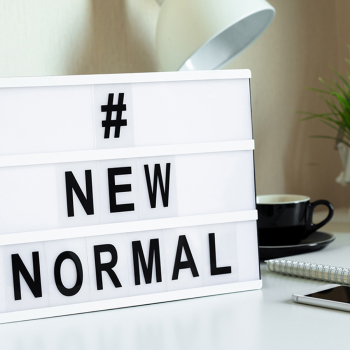The impact of long-term isolation on your body and mental wellbeing

Living in lockdown can have profound physical and psychological effects on your mental and physical wellbeing. We unpack these and offer tips on how to better cope with them.
Living in lockdown can have profound physical and psychological effects on your mental and physical wellbeing. We unpack these and offer tips on how to better cope with them.
With the onslaught of the COVID-19 pandemic, and subsequent lockdown, more and more South Africans are experiencing greater levels of fear and anxiety associated with being increasingly isolated, and dealing with the unprecedented levels of uncertainty and stress.
The “I” in isolate
There have been numerous studies on the effects of long-term isolation – including studies done on astronauts, incarcerated prisoners, immune-compromised individuals, Antarctic researchers, and the elderly. All the afore mentioned studies come down to similar findings – that being socially connected in a meaningful way is actually the key to human health and survival. The irony is that this conclusion is in stark contrast to the current status quo globally – where social distancing and isolation are, in fact, regarded as a way of increasing your chances of survival.
Although social distancing and isolation may be necessary to fight the Coronavirus pandemic, they are certainly not conducive to promoting overall wellbeing. In fact, the pandemic has highlighted the struggle to balance day-to-day survival with all the things that make surviving worthwhile. It has also highlighted that we are intrinsically social creatures and that there is some form of social relevance in nearly every sector of our lives from employment, education, entertainment, travel, transportation and recreation.
In the above-mentioned studies, when people in confinement knew that their isolation would be over by a certain date, they could deal with life accordingly, as they would be able to focus on “the light at the end of the tunnel”, so to speak. However, with the current situation with COVID-19, there is no such comfort. Although intellectually you might understand that this situation will pass at some stage, emotionally, it feels that it might be around forever. This is emphasised with terms that get exhaustively used in the media, such as “the new normal” and mentions of “the second wave”. It leaves you questioning: “Is this how life is going to be indefinitely?”
If prolonged, these kinds of thoughts can often trigger feelings of being out of control, which in turn can lead to feelings of lethargy and being demotivated. When we don’t have positive input from others, or the ability to use others to help soundboard our concerns, negative ideas are left to spiral out of control leading to feelings of sadness and anxiety. This can progress to anxiety disorders and /or depression in some cases.
Fear and loathing
The feelings associated with fear or apprehension of what’s to come, and the subsequent anxiety that it causes, is a normal part of life. Physically, they display as a way of preparing you to face an intense and threatening situation – comprising an increase in your breathing and heart rate, and concentrating blood flow to your brain.
However, an excessive or persistent state of anxiety can have a devastating effect on your physical and mental health. Some of the side effects of chronic anxiety include recurring feelings of impending doom, panic attacks, depression, headaches, irritability, breathing problems, pounding heart rate, upset stomach, extreme fatigue, increased blood pressure, disruptions to your immunity and endocrine systems, as well as general muscle aches and pains.
Being in lockdown can be described as a petri dish of isolation, fear and anxiety – all of which combine to create feelings of loneliness and of being disconnected from reality, people, society, and even yourself. Loneliness does not mean that you are necessarily on your own, but rather, it refers to a general feeling of being disconnected from the world around you. Harry Taylor, who studied social isolation in older adults, noted: “The mortality effect of social isolation is as harmful as smoking 15 cigarettes a day.” Studies further show that loneliness can cause extreme changes to sleep patterns, and negatively impact the immune, endocrine and neurocognitive systems, and your metabolism.
COVID-Anger
Another common symptom of lockdown but less talked about, is an increased level of irritability and anger – referred to as COVID-Anger. Triggered by fear, and the added financial, family and job stresses – anger is an obvious outcome as normal coping mechanisms start to fail. The negative stories in the press and on social media, such as people dying, starving and the devastating effect on the economy, can lead to surges in mental health concerns, substance abuse, emotional overeating, and domestic violence.
So what can we do?
If managed correctly, you can mitigate the effects of the lockdown lifestyle. Here are a few tips that will help you guard against “falling down the rabbit hole”:
- Nurture the key relationships in your life – your partner, children, parents, grandparents, siblings and your closest friends. Use technology to stay in touch and communicate regularly.
- Resist the temptation of doing nothing, and remain physically active. Exercise is incredibly important for the mind, body and soul, and really aids in augmenting feelings of positivity.
- Try not to comfort eat - rather focus on food that will nourish your body and boost your immune system. Avoid too much processed foods, and swap them out for whole foods instead.
- Try to get as much quality sleep as you can. Avoid caffeine and try and reduce blue light exposure in the late evenings – this includes cell phones, tablets and TV screens. Rather read a book before bed.
- Stay curious – learn something new. Alternatively, do something that you have wanted to do for a long time, but never had the time to do – whether it is cleaning out the pantry, painting a wall, or tending to your garden. These things will give you a sense of achievement and purpose that can be an incredibly powerful motivator.
- Keep your perspective - avoid bad news and doom-scrolling from one negative news article to another, and remind yourself that in time, “this too shall pass”. Rather focus on the things within your control and things that bring you joy and peace, and let go of the rest.
How does Bankmed support their member’s mental wellbeing?
- Mental Health Disease Management Programme
- Bankmed offers a comprehensive programme commencing in 2021, that includes both out-of-hospital and in-hospital support. Below are a few highlights of the programme:
- Members on all six plans have access to the mental health programme, however plan benefits will apply with respect to condition cover
- The programme looks at strategies across the spectrum from the healthy to those members requiring comprehensive inpatient care
- The healthy and at risk segments are promoted through regular screening at wellness days and through online assessments
- Members have access to:
- A mental wellbeing module on the website which includes information that promotes mental wellbeing e.g. advice on mindfulness, meditation exercises etc.
- Counselling should someone at risk wish to speak to a counsellor
- A primary care programme which is General Practitioner (GP) level of care.
The GP will enrol the member onto the programme e.g. Major Depression
and monitor compliance to medication etc. - Coaching and educational material
- A hospital DSP/Network, case management and discharge planning by a care coordinator
- Enrolment on a relapse prevention programme to provide the necessary support on discharge to prevent unnecessary readmissions
- Members also have access to in-hospital psychiatry and clinical psychology consultations as well as out-of-hospital consultations*
- Members have access to virtual, telephonic and in-person consultations with a psychologist or psychiatrist in the Bankmed network*
*(All benefits are subject to the relevant Plan type)
For the full list of benefits please refer to our Benefit and Contribution Schedule

